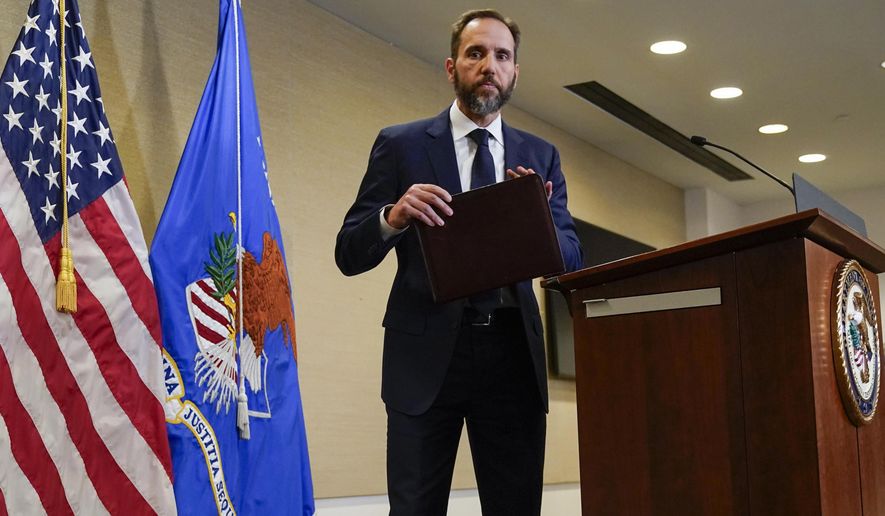Federal prosecutors aired their frustration late Tuesday with the federal judge overseeing former President Donald Trump’s documents trial in Florida, saying her recent order seeking jury instructions leaned on a “fundamentally flawed legal premise.”
Special counsel Jack Smith says a recent order from U.S. District Judge Aileen Cannon, which sought draft language on jury instructions, seemed to embrace Mr. Trump’s claim that records could fall into “personal” or “presidential” categories under the Presidential Records Act.
A second scenario in her order would advise the jury to weigh whether Mr. Trump had complete authority as president to take whatever records he wanted from the White House.
“Both scenarios rest on an unstated and fundamentally flawed legal premise — namely, that the Presidential Records Act, and in particular its distinction between ‘personal’ and ‘Presidential’ records, determines whether a former President is ‘authorized,’ under the Espionage Act, to possess highly classified documents and store them in an unsecure facility,” Mr. Smith’s team wrote in their filing.
In a risky move, prosecutors say the court should issue a ruling on whether the PRA’s distinction between personal and presidential records is applicable to this case, in which Mr. Trump faces dozens of counts of unlawfully storing government records at his Mar-a-Lago estate in Florida.
If the court “wrongly concludes” that it is applicable, Mr. Smith’s team wants the chance to swiftly appeal that decision before the case goes to trial. If a jury were to take up the case and acquit Mr. Trump before the issue is resolved, then Mr. Smith would have no recourse to challenge the outcome.
The filings marked the latest instance of friction between Judge Cannon, a Trump appointee, and prosecutors who fear delays over pre-trial issues could push the trial beyond the November election.
Prosecutors raided Mr. Trump’s Mar-a-Lago estate in August 2022 after archivists said they were having trouble recovering government records, including classified information, from the ex-president.
Mr. Trump says he has a lawful right to the records under his presidential designation powers, though prosecutors say he is wrong and relied too heavily on conservative think tanks to construct his reasoning.
The former president faces more than 40 counts, including 32 counts of unauthorized retention of national security secrets; seven counts of obstructing efforts to retrieve the documents; and three counts of making false statements. He has pleaded not guilty.
Mr. Trump’s lawyers, in their response Tuesday, said Judge Cannon should advise jurors that Mr. Trump was authorized by the PRA to possess documents that fall under the “personal” designation.
Mr. Smith’s team says the personal-private division is a false construct and the conduct in question happened after Mr. Trump left office.
“It would be pure fiction to suggest that highly classified documents created by members of the intelligence community and military and presented to the President of the United States during his term in office were ‘purely private,’” Mr. Smith’s attorneys wrote.
• Tom Howell Jr. can be reached at thowell@washingtontimes.com.




Please read our comment policy before commenting.